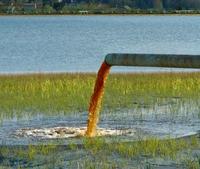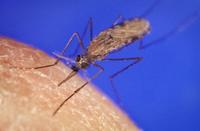-
The “militarization of health care” threatening the health of local populations: experts
The surge in murders of polio vaccination workers in Pakistan has made headlines this year, but little attention has been devoted to the ethical issues surrounding the global health impact of current counterterrorism policy and practice. A new study traces the ways that the war on terror is incorporating medicine into warfare – what the researchers call “the militarization of health care” — threatening the health of local populations, increasing global health disparities, and causing profound moral distress among humanitarian and health care workers.
-
-
Forensic geographical profiling technique targets killer diseases

A mathematical tool used by the Metropolitan Police and FBI has been adapted by researchers to help control outbreaks of malaria, and has the potential to target other infectious diseases. The researchers have shown how the math that underpins what law enforcement calls “geographic profiling” can be adapted to target the control of infectious diseases, including malaria.
-
-
Engineered enzymes to neutralize deadly effects of chemical weapons
Researchers are a step closer to creating a prophylactic drug that would neutralize the deadly effects of the chemical weapons used in Syria and elsewhere. The researchers are trying to engineer enzymes — called bioscavengers — so they work more efficiently against chemical weapons.
-
-
Researchers develop better methods to detect E. coli
Researchers have developed a method to detect E. coli before it can potentially contaminate the food supply. The newly developed test is a molecular assay, or polymerase chain reaction, that detects bacteria based on genetic sequences, which are the bacteria’s “fingerprints.” The new approach to E. coli detection would benefit the beef industry by preventing costly recalls, and it would benefit consumers by ensuring the safety of the beef supply.
-
-
As many as 75 CDC scientists exposed to anthrax after violation of handling procedure
The Centers for Disease Control and Prevention (CDC) said yesterday (Thursday) that as many as seventy-five scientists working in CDC laboratories in Atlanta, Georgia may have been exposed to live anthrax bacteria after researchers deviated from established pathogen handling procedures. The exposure occurred after researchers working in a high-level biosecurity laboratory located at the CDC’s Atlanta campus failed to follow proper procedures to inactivate the bacteria. They compounded this initial error by moving the samples, which may have included live bacteria, to lower-security CDC labs not equipped to handle live anthrax. Scientists working in the lower security lab do not wear the protective gear necessary when handling live anthrax bacteria.
-
-
Researchers discover Achilles’ heel in antibiotic-resistant bacteria
Scientists have made a breakthrough in the race to solve antibiotic resistance. New research reveals an Achilles’ heel in the defensive barrier which surrounds drug-resistant bacterial cells. The findings pave the way for a new wave of drugs that kill superbugs by bringing down their defensive walls rather than attacking the bacteria itself. It means that in future, bacteria may not develop drug-resistance at all.
-
-
Chemical pollution of European waters is worse than anticipated

Until now environmental authorities and parts of the scientific community have considered toxic chemicals to be rather a local problem affecting only a few bodies of water. A new study, however, reveals for the first time on a large scale the ecological risks emanating from chemical toxicants for several thousands of European aquatic systems. Chemical toxicity represents an ecological threat to almost half of all European bodies of water, and in approximately 15 percent of cases, the biota in freshwater systems may even be subject to acute mortality.
-
-
Drug-resistant pathogens spread in Florida hospitals
Drug-resistant germs kill more than 40 percent of individuals with serious infections, and they tend to have a higher kill-rate among patients with weaker immune systems, including the elderly and young children. In Florida, several hospitals handled antibiotic-resistant germ outbreaks without alerting the public. Since 2008, twelve outbreaks have affected at least 490 people statewide, but the Florida Department of Health(FDH) did little to inform the public.
-
-
Bioterrorism as a voter fraud mechanism
In the early 1980s, a guru named Bhagwan Shree Rajneesh and his hundreds of followers, called Rajneeshees, relocated from India to a 64,000-acre ranch in Wasco County, Oregon, a rural area of roughly 21,000 people at the time. Rajneesh’s plan to build more houses on the ranch to accommodate his followers was denied by county officials. Rajneesh had an idea: to win seats on the County Commission, the Rajneeshees decided to suppress non-Rajneeshees voters by poisoning thousands of residents with Salmonella prior to election day, and then recruit thousands of homeless people from nearby cities and offering them food if they voted for Rajneeshees-backed candidates.
-
-
Avian flu viruses has all the ingredients necessary for the emergence of 1918 influenza-like virus
The 1918, or “Spanish flu,” pandemic was one of recorded history’s most devastating outbreaks of disease, resulting in an estimated forty million deaths worldwide. Researchers have shown that circulating avian influenza viruses contain all the genetic ingredients necessary to underpin the emergence of a virus similar to the deadly 1918 influenza virus. The researchers have identified eight genes from influenza viruses isolated from wild ducks that possessed remarkable genetic similarities to the genes that made up the 1918 pandemic flu virus.
-
-
Advancing microbial forensics to respond to global biological outbreaks
Much as human DNA can be used as evidence in criminal trials, genetic information about microorganisms can be analyzed to identify pathogens or other biological agents in the event of a suspicious disease outbreak. Biological outbreaks can include natural occurrences, accidental, or negligent releases from laboratories, biocrimes aimed at individuals or small groups, or acts of bioterrorism and biowarfare intended to affect large populations. The tools and methods used to investigate such outbreaks belong to an emerging discipline known as microbial forensics, but the field faces substantial scientific and technical challenges, says a new report.
-
-
Wiping out malaria-carrying mosquitoes with male-only offspring

Over 3.4 billion people are at risk from contracting malaria, and an estimated 627,000 people die each year from the disease. Scientists have modified mosquitoes to produce sperm that will only create males, pioneering a fresh approach to eradicating malaria.
-
-
Scientists divided on whether to destroy last stocks of smallpox virus
While smallpox has been eradicated since 1980, the World Health Organization (WHO) still maintains a stockpile of the virus — a measure which is becoming an increasingly contentious issue for members of the 194-nation organization. Some scientists argue that the stockpiles of the virus should be maintained until there is a completely confirmed response to any possible future smallpox outbreak, while other scientists argue that the danger of an accidental outbreak or terrorist bioattack using the virus far outweighed any advances to be made by additional live testing.
-
-
Scientists: immediate action required to address superbugs’ threat
Scientists warn that drug-resistant superbugs demand an immediate, serious response and that the steps required to plan for these pathogens were not properly taken in previous decades. “[A] world without effective antibiotics would be ‘deadly,’ with routine surgery, treatments for cancer and diabetes and organ transplants becoming impossible,” says one scientist. The scientists warn that if action is not taken immediately, the massive health gains made since Alexander Fleming’s discovery of penicillin in 1928 will be lost forever.
-
-
Leidos awarded DHS Plum Island biolab contract
DHS awarded Reston, Virginia-based Leidos a prime contract to support and supplement the Science and Technology (S&T) Agricultural Scientific Program at the Plum Island Animal Disease Center (PIADC). The single-award time and materials (T&M) contract has a one-year base period of performance, four one-year options, and a total contract value of approximately $12 million if all options are exercised. Work will be performed in Orient Point, New York.
-
More headlines
The long view
We Ran the C.D.C.: Kennedy Is Endangering Every American’s Health
Nine former leaders of the Centers for Disease Control and Prevention (CDC), who served as directors or acting directors under Republican and Democratic administrations, serving under presidents from Jimmy Carter to Donald Trrump, argue that HHS Secretary Roert F. Kennedy Jr. poses a clear and present danger to the health of Americans. He has placed anti-vaxxers and conspiracy theorists at top HHS positions, and he appears to be guided by a hostility to science and a belief in bizarre, unscientific approaches to public health.
